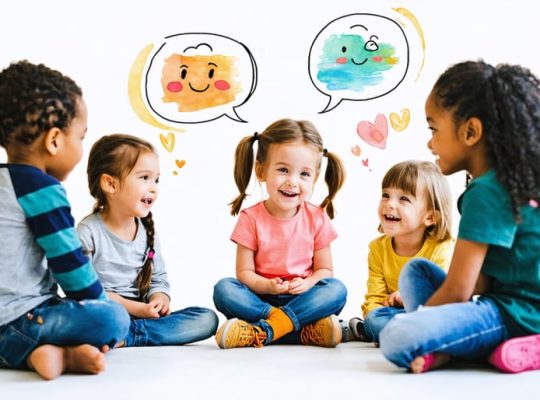Engage your community in uplifting children’s mental health through innovative support programs. Rally local organizations, schools, and families to create a network of caring adults who regularly check in with kids, offer mentorship, and provide safe spaces to share feelings. Leverage the power of shared experiences by connecting youth who have faced similar challenges, allowing them to support and inspire each other. Partner with mental health professionals to train community members in recognizing signs of distress, providing emotional first aid, and connecting kids with professional help when needed. Together, we can weave a strong safety net that ensures no child faces mental health struggles alone.
Peer Support Groups

Benefits of Peer Support
Peer support groups offer a safe, empathetic space for children to connect with others who understand their challenges. By sharing experiences and emotions, kids realize they’re not alone in their struggles. This sense of belonging boosts self-esteem and reduces feelings of isolation. Through group activities and discussions, children develop crucial social skills like active listening, empathy, and respectful communication.
Interacting with peers who have overcome similar issues instills hope and motivation. Children learn coping strategies and gain practical advice from those further along in their journey. This empowers them to face their own obstacles with greater resilience. Peer support also fosters lasting friendships, providing a network of encouragement and companionship that extends beyond formal meetings.
Moreover, peer groups help children feel valued and accepted for who they are. In this judgement-free environment, they can express themselves authentically without fear of stigma or rejection. This emotional safety is vital for building trust and openness, allowing kids to process their feelings and experiences more effectively. By engaging in peer support, children cultivate a stronger sense of self and learn to advocate for their own mental health needs.
How to Find or Start a Peer Support Group
Finding or starting a peer support group for parents of children with mental health challenges can be an invaluable way to connect with others who truly understand your experiences. To locate existing groups, start by asking your child’s mental health provider or searching online for local organizations focused on children’s mental health. Many national advocacy groups also maintain directories of peer support programs. If you can’t find a suitable group, consider starting your own. Reach out to other parents through your personal network or your child’s school or healthcare providers. Collaborate with a mental health professional to help structure and guide the group. Choose a comfortable meeting space, such as a library or community center, and decide on a regular meeting schedule. Establish ground rules that foster a safe, non-judgmental environment where parents can openly share their stories, challenges, and triumphs. Encourage participants to maintain confidentiality and treat each other with compassion and respect. Remember, peer support groups thrive on the collective wisdom and experiences of their members. By sharing your own journey and listening to others with an open heart, you can create a powerful source of support, encouragement, and practical guidance for navigating the joys and challenges of parenting a child with mental health needs.
School-Based Mental Health Initiatives
Schools play a crucial role in a child’s mental health, serving as a supportive environment that can identify and address emotional and behavioral concerns early on. Many schools are now implementing comprehensive mental health initiatives to promote well-being and resilience among students.
One key component of these initiatives is providing accessible counseling services. School counselors and psychologists offer individual and group therapy sessions, helping students navigate challenges such as anxiety, depression, bullying, and family issues. These professionals collaborate with teachers and parents to create personalized support plans that cater to each child’s unique needs.
Mindfulness programs have also gained popularity in schools, teaching children valuable coping skills and stress-reduction techniques. Through activities like deep breathing exercises, guided imagery, and yoga, students learn to regulate their emotions, improve focus, and cultivate a positive mindset. These practices can be integrated into daily classroom routines or offered as extracurricular workshops.
Recognizing the importance of early intervention, many schools now provide mental health support and training for teachers. Educators learn to identify signs of distress, communicate effectively with students, and create a supportive classroom environment. By equipping teachers with these skills, schools can ensure that mental health concerns are addressed promptly and compassionately.
One inspiring success story comes from Sunnybrook Elementary School in Toronto. The school implemented a comprehensive mental health program that includes weekly counseling sessions, mindfulness workshops, and teacher training. Within a year, the school reported a significant decrease in disciplinary issues and an increase in student engagement and academic performance. Parents and teachers alike praised the program for fostering a more positive and nurturing school culture.
As more schools prioritize mental health, it’s heartening to see the positive impact these initiatives can have on students’ lives. By providing a strong support system and teaching valuable coping skills, schools are empowering children to thrive both academically and emotionally. With continued collaboration between educators, mental health professionals, and families, we can create a brighter future for the next generation.

Family Support Networks
Family support is a critical component in helping children navigate mental health challenges. When families feel supported and connected within their communities, they are better equipped to provide the love, understanding, and resources their children need to thrive. Community-led family support networks can offer a lifeline to those struggling with mental health issues by creating safe spaces for sharing experiences, learning from one another, and accessing valuable resources.
One inspiring example of a community-led family support program is the “Family Connections” initiative in San Francisco. This program brings together families from diverse backgrounds to participate in weekly support groups, educational workshops, and social events. Trained facilitators guide discussions on topics such as effective communication, stress management, and navigating the mental health system. Families also have the opportunity to connect with local mental health professionals and access referrals for additional support services.
By fostering a sense of belonging and empowerment, programs like Family Connections help reduce the stigma surrounding mental health and encourage families to seek help when needed. As one participant shared, “Being part of this group has shown me that I’m not alone in my struggles. It’s given me the strength and tools to better support my child and our entire family.”
Communities that prioritize family support networks are investing in the well-being of their youngest members. By creating a village of support around each family, we can help ensure that no child faces mental health challenges alone. Through collaboration, compassion, and a commitment to building strong families, we can foster resilient communities where every child has the opportunity to reach their full potential.
Youth Mentorship Programs
Youth mentorship programs can have a profound positive impact on children’s mental health and overall well-being. By pairing young people with caring adult mentors, these initiatives provide guidance, support, and a listening ear during crucial developmental years. Mentors serve as positive role models, helping kids build self-esteem, develop coping skills, and navigate life’s challenges. Studies have shown that children with mentors are less likely to engage in risky behaviors and more likely to excel in school and relationships.
One inspiring example is the “Big Brothers Big Sisters” program, which operates in communities across the United States. This renowned organization matches adult volunteers with children facing adversity, fostering one-on-one mentoring relationships. Mentors commit to spending quality time with their “Littles” each week, engaging in activities like sports, arts and crafts, or simply talking about life. The bonds formed are often life-changing.
As Sarah, a single mom from Chicago, shares, “My son was struggling after his father left, but his Big Brother has been an incredible source of stability and encouragement. Knowing there’s someone else who cares about him and is invested in his future has made all the difference.”
Dr. Emily Thompson, a child psychologist, emphasizes the importance of such programs: “Having a trusted adult to turn to, especially during times of stress or transition, can be a powerful protective factor for a child’s mental health. Mentorship provides a safe space for kids to express themselves, learn healthy coping mechanisms, and build resilience.”
By offering mentorship opportunities, communities can wrap their arms around youth who may be facing challenges at home or school, letting them know they are valued and supported. These programs not only benefit individual children but also strengthen the social fabric of the community as a whole.

Conclusion
Community support initiatives can make a profound difference in the lives of children struggling with mental health challenges. By coming together, we can create a nurturing environment that promotes resilience, hope, and healing. Whether you’re a parent, teacher, or healthcare professional, there are countless ways to get involved and make a positive impact.
Consider volunteering with local organizations, advocating for improved mental health services, or starting your own community program. Every action, no matter how small, can contribute to a brighter future for our children. Remember, it takes a village to raise a child, and by working together, we can ensure that no child faces mental health struggles alone.
If you’re looking to learn more or find ways to support children’s mental health in your community, there are many resources for further information and guidance available. Don’t hesitate to reach out to local mental health organizations, schools, or healthcare providers for advice and opportunities to get involved.
Together, we can create a world where every child feels supported, valued, and empowered to thrive. Let’s embrace the power of community and work hand in hand to promote the mental well-being of our youngest generation.







